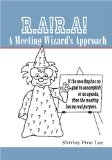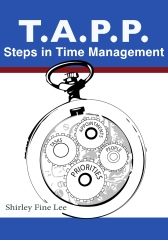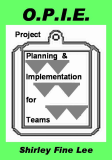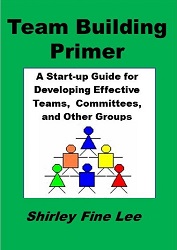|
�

Team graphics created by ---.Jonathan D.
Lee --- exclusively for Shirley Lee. |
Technicomp or Wizard's
Team Building Courses
Teams for
Excellence Series
Holding Effective And Efficient Team Meetings
Conflict
Management for Teams Series
Advance
Team Problem Solving Series
Self-Directed
Teams Series
Achieving
Excellence with Process Improvement Skills for Teams
Simplified Project Management For Teams
|
| � |
� |
| � |
� |
|
Teams for
Excellence
(Estimated time as full workshop 2-3 Days)
Target Audience: All workers
involved in teams as members, leaders, facilitators and recorders; and also any
others who must support team efforts.
Introduction to Teams for Excellence
(Estimated Time: 2 - 4 hours)
Primarily lecture with a simple activity (great
for brown bags or to start a team meeting)
- What is a team?
- What benefits do teams offer?
- When should teams be used?
- What makes a high-potential, high-energy team?
Stages of Team Development
(Estimated Time: 2 - 3 hours)
Primarily lecture with a simple activity (great
for brown bags or to start a team meeting)
- Gain acceptance
- Build trust
- Achieve cooperation
- Perform the task
Roles of Team Participants
(Estimated Time: 2 - 3 hours)
Primarily lecture with a simple activity (great
for brown bags or to start a team meeting)
- Team members
- Team leaders
- Facilitator
- Recorder
Conducting a Meeting
(Estimated Time: 2 - 3 hours)
Primarily lecture with a simple activity (great
for brown bags or to start a team meeting)
- Creating and following an agenda
- Stating the purpose and expected outcomes
- Assigning between-meeting responsibilities
- Evaluating meetings
Types of Teams
(Estimated Time: 1 - 2 hours)
Primarily lecture with a simple activity (great
for brown bags or to start a team meeting)
- Choosing the right team for the task
- Characteristics that define team types
Technical Requirements of Teams
(Estimated Time: 3 - 6 hours)
Primarily lecture with simple activities towards
team results(great for brown bags or to start a team meeting)
- Identifying goals and tasks
- Identifying a results-oriented approach
- Problem solving methods
- Monitoring progress
Decision Making
(Estimated Time: 1 - 2 hours)
Primarily lecture with a simple activity (great
for brown bags or to start a team meeting)
- Pros and cons of several methods
- Decision by authority or by default
- Decision by consensus
Interpersonal Skills
(Estimated Time: 2 - 5 hours)
Primarily lecture with simple activities (great
for brown bags or to start a team meeting)
- Importance of clear, open communication
- How to speak effectively
- How to practice good listening skills
- How to give and receive constructive feedback
Handling Potential
Problems (Estimated Time: 2 - 3 hours)
Primarily lecture with a simple activity (great
for brown bags or to start a team meeting)
- How to recognize and address problems
- How to address a team's lack of energy
- How to keep a team moving forward
� |
Holding Effective And Efficient Team Meetings
Target Audience: All team
participants, in any type of organization.
Team meetings are an important way to get ideas shared and important tasks
accomplished. Help make meetings more effective by offering a quick look at
basic meeting management and the key process skills necessary to team using the
R.A!R.A! Approach. Team members will learn: necessary meeting roles, why an
agenda is important, ways to accomplish more in each meeting, how to insure
meeting ideas and decisions are captured, assign actions for appropriate
follow-up outside their meetings, take good minutes, and how to improve future
meetings.
** Based on book: R.A!R.A! A Meeting Wizard's Approach.
Benefits: This training will increase the effectiveness of team meetings
and teach team members valuable efficiency skills.
Learning Objectives:
- Learn the various types of meetings
- Use 3T�s for an efficient agenda
- Assign and rotate necessary roles
- Determine meeting frequency
- Learn how to keep records during meeting
- Understand importance of meeting minutes
- Use 3W�s to assign action items
- Understand how meetings can become ineffective
Conflict Management for Teams
(Estimated time as full workshop 1 Day)
Target Audience: All team
participants, in any type of organization.
| Rethinking Conflict
(Estimated Time: 1 - 2 hours)
Primarily lecture (great for brown bags or to
start a team meeting)
- Common misperceptions
- Positive side of conflict
- Benefits of managing conflict
|
| Types of Conflict
(Estimated Time: 1 - 2 hours)
Primarily lecture (great for brown bags or to
start a team meeting)
- Definitions of and reasons for task-related,
relational, and mixed conflicts
- Why it's important to know how each type differs
- How to recognize a relational conflict
|
| Forces that influence
conflict (Estimated Time: 1 - 2 hours)
Primarily lecture (great for brown bags or to
start a team meeting)
- Influences of power, face-saving and climate
- How to prevent influences from blocking successful
conflict management
|
| Conflict Management Styles
(Estimated Time: 1 - 2 hours)
Primarily lecture (great for brown bags or to
start a team meeting)
- Descriptions, advantages, and disadvantages of 5
conflict management styles.
|
| Managing Conflict�
(Estimated Time: 1 - 2 hours)
Primarily lecture (great for brown bags or to
start a team meeting)
- Identifying and diagnosing a conflict situation
- Choosing an appropriate conflict management style
- Addressing the conflict
- Reaching common ground
|
| Strategies for Dealing
with Relational Conflict� (Estimated Time: 1 - 2
hours)
Primarily lecture (great for brown bags or to
start a team meeting)
- How to address a relational conflict
- How to deal with anger and face-saving
|
| Communication Skills �(Estimated
Time: 1 - 2 hours)
Primarily lecture (great for brown bags or to
start a team meeting)
- Role of communication in a conflict situation
- How we send and receive messages
- Practical guidelines on listening, responding, and
questioning
|
|
Alternative:� Productive Conflict workshop
Assessment based-training provides a straightforward approach that helps
participants develop the understanding and self-awareness necessary to resolve
interpersonal conflict. In addition to learning how to work through conflict on
an individual basis, a strong foundation for resolving issues within an entire
team are offered. This builds important skills that are necessary for effective
communication and teamwork by providing the keys to maintaining a well-balanced
workplace by helping individuals understand their behavior in conflict and
providing the problem solving skills needed to manage adversity within the team.
Benefits: Conflict can tear a team apart, so it is crucial that problems
be resolved before they take over a group. After this training, your will find:
conflict does not linger, your people feel understood, and good decisions get
made.
Learning Objectives:
- Become aware of what happens to peoplee under pressure
- Manage adversity and avoid blame
- Learn strategies for hearing all sidess of an issue
- Understand behaviors to avoid when in conflict
- Identify a team list of acceptable andd unacceptable behaviors
- Identify strategies for successful ressolution
- Gain ability to have tough conversatioons
� |
Advance
Team Problem Solving (Not offered as full
workshop, only as facilitated modules)
Target Audience:� Unless specified otherwise - All team members who are responsible for improving their
internal or external relationships.
Advanced Team Skill: Identifying Customer Needs�
(Estimated Time: 4 - 8 hours)
Team members who are responsible for improving their internal or external
relationships use a real work example from their organization to build a
better response plan.Learning Objectives:
- Build awareness of customer/ supplier relationship
- Set goals based on customer needs
- Session may be for a single team or multiple
cross-functional teams
Benefits: Your company teams will better
understand the complexity of their work and how they must interface with
others outside the team.
Suggestions: For experienced intact teams.�
Work teams may choose to follow up on this course with Domain Analysis.
� |
| Advanced Team Skill: Process Mapping
And Analysis ((Estimated Time: 4-8 hours)
Team members get to know all the steps in a work process
flow from start to finish so they can identify areas where problems are
prevalent and highlight wasted tine, excessive paperwork, and any
unnecessary movement.
Benefits: Helps your teams identify opportunities for improvement
within a specific work process.
Learning Objectives:
- Document all steps in process or procedure
- Isolate problem causes
- Identify non-value added work, redundancies, or
delays
Suggestions: For intact team. Teams should take
Problem Solving course first.
� |
| Advanced Team Skill: Domain Analysis �(Estimated
Time: 2 hours) Team members who are
responsible for improving their internal or external relationships use a
real work example from their organization to better know what others expect
the team to do or provide. Others can include customers (internal and
external), other teams, various departments, regulatory agencies, and more.
Benefits: Helps you teams understand the demands placed on them by
different functions within the company.
Learning Objectives:
- Identify demands placed on team by others
- Develop plans for responding to demands
- Reduce demands or change response
Suggestions: For intact team. Cross-functional
or Work Teams should take Identifying Customer Needs course first.
� |
�
Self-Directed Teams (Estimated time as full
workshop 1/2 Day)
Target Audience:� Any
employees who need initial or refresher training in the basics of self-directed
teams.
| Definition of Self-Directed Teams
(Estimated Time: 1 hour)
Primarily lecture (great for brown bags or to
start a team meeting)
- How self-directed teams differ from other teams
- Typical size
- Levels of responsibility and authority
|
| Why Organizations Have Established
Self-Directed Teams (Estimated Time: 1 hour)
Lecture only (great for brown bags or to start a
team meeting)
- Benefits realized by organizations
- Benefits realized by individual team members
- Difficulties encountered by teams
|
| Self-Directed Teams' Responsibilities
(Estimated Time: 1 hour)
Lecture only (great for brown bags or to start a
team meeting)
- Why responsibilities may vary from one team to
another
- How teams' responsibilities increase
- Work- or task-related responsibilities
- People-related responsibilities
|
| Typical Structures of Self-Directed
Teams (Estimated Time: 1 hour)
Lecture only (great for brown bags or to start a
team meeting)
- Team leadership
- Key area representatives
- Team coordinators
- Team meetings
- Support services
|
| How Self-Directed Teams Evolved
(Estimated Time: 1 hour)
Lecture only (great for brown bags or to start a
team meeting)
- Traditional employee-manager relationship
- Evolution of teams during the past several decades
- Where self-directed teams have been established
|
| How Self-Directed Teams are
Established in an Organization (Estimated Time: 1 hour)
Lecture only (great for brown bags or to start a
team meeting)
- Role of steering committee
- Role of design team
- Factors that contribute to a team's success
- Factors that may lead to failure
|
| Development Pattern of Self-Directed
Teams (Estimated Time: 1hour)
Lecture only (great for brown bags or to start a
team meeting)
- Four common stages
- Unique considerations of self-directed team
development
- Changes in a team's relationship with its (former)
super
|
�
Achieving Excellence - Process Improvement Skills for Teams
(Estimated time as full workshop 1.5 Days)
Target Audience:�
Unless specified otherwise -
All team members who are responsible for improving their processes, particularly
those in service organizations, administrative and
support functions and government agencies.
�
| Achieving Excellence -
STRATEGY |
|
Overview of Process Improvement
(Estimated Time: 1 hour)
Lecture only (great for brown bags or to start a
team meeting)
- Purpose, benefits and basic activities of process
improvement efforts
- Importance of clear communication and
documentation of the team's efforts
|
| Selection
(Estimated Time: 1 hour)
Lecture only (great for brown bags or to start a
team meeting)
- Four-step procedure to select an appropriate
process improvement opportunity
- Functional vs. cross-functional processes
- Common errors during selection
|
| Definition
(Estimated Time: 1 hour)
Lecture only (great for brown bags or to start a
team meeting)
- Definitions of process characteristics
- How to identify process work activities
- Purpose and symbols of flowcharts
- How to write a detailed problem statement
|
| Simplification
(Estimated Time: 1 hour)
Lecture only (great for brown bags or to start a
team meeting)
- How to make immediate, temporary fixes to prevent
problems from reaching customers
- Definitions of customer value-added activities,
operational value-added activities, and non-value-added activities
|
| Measurement
(Estimated Time: 1 hour)
Lecture only (great for brown bags or to start a
team meeting)
- Determining when, what and how to measure
- Process vs. output characteristics
- How to decide what type of data to collect
- Common data collection and analysis tools
- Assigning responsibilities, communicating efforts,
and documenting results
|
|
Implementation and Improvement
(Estimated Time: 1 hour)
Lecture only (great for brown bags or to start a
team meeting)
- Activities necessary for successful implementations
- Importance of ongoing improvement efforts
- Using benchmarking
|
| Achieving Excellence - TOOLS
and TECHNIQUES |
| Idea Generation
(Estimated Time: 1 hour)
Lecture only (great for brown bags or to start a
team meeting)
- Brainstorming
- Nominal group technique
- Affinity diagrams
- Storyboards
|
| Idea Analysis
(Estimated Time: 1 hour)
Lecture only (great for brown bags or to start a
team meeting)
- Cause-and-effect analysis
- Force field analysis
� |
| Advanced Team Skill: Idea Generation
And Analysis (combines above Idea Generaton and Idea Analysis into
single workshop concentrating on a real Team issue)
(Estimated Time: 3 hours) Team members
may be cautious about sharing ideas and opinions when a structure for this
is not provided. Using tools and techniques for generating and categorizing
ideas can create team energy and focus. Cause and effect analysis is often
used by teams for identifying problems and finding ideas to resolve them.
Benefits: Your company teams will learn four different techniques for
generating and analyzing ideas.
Learning Objectives:
- Practice brainstorming
- Learn nominal group technique
- Categorize with affinity diagram
- Understand cause-and-effect analysis with fishbone
diagram
Suggestions: For intact work teams.
|
| Data Gathering
(Estimated Time: 1 hour)
Lecture only (great for brown bags or to start a
team meeting)
- Sampling techniques
- Check sheets
- Frequency tables
|
| Data Analysis
(Estimated Time: 1 hour)
Lecture only (great for brown bags or to start a
team meeting)
- Pareto diagrams
- Histograms
- Scatter diagrams
- Run charts
|
| Process Flow Analysis (Estimated Time: 1 hour)
Lecture only (great for brown bags or to start a
team meeting)
- Standard process flowcharts
- Deployment process flowcharts
|
| � |
Simplified Project Management For Teams
Target Audience: All team
participants, in any type of organization.
Most team project do not require formalized project management, instead a quick
study in general project management processes and related outputs is all that is
necessary. Teams and team leaders will learn a simple process called O.P.I.E.
(Open, Plan, Implement, End) for their project management. Key components
covered include: typical project roles and types, how to start and end projects
on time, how to accomplish more with the resources available, how to measure and
improve future projects as well as what kind of problems may put projects at
risk.
** Based on book: O.P.I.E. Project Planning and Implementation for Teams
Benefits: Your company teams will learn a simple approach to quickly
start and end projects effectively.
Learning Objectives:
- Understand the Basic Principles for Project Management
- Learn the O.P.I.E. Process
- Know the different Project Roles & Types
- Open a project with specifications
- Plan a project schedule
- Implement and monitor the project plan
- End the project
- Recognize problems that may arise with projects
�
�
| |

�
Click
cover above to order Paperback Book or below for
RARA A Meeting Wizard's Approach Kindle e-Book

Click
cover above to order Paperback Book or below for
TAPP Steps in Time Mgmt Kindle e-book

OPIE Project Planning and Implementation for Team - Only available as Kindle
e-book on Amazon

Team Building Primer: A Start-up Guide for Developing Effective Teams,
Committees, and Other Groups
�
�
|